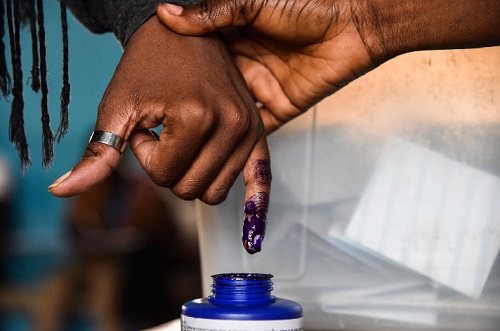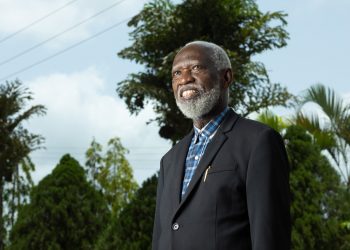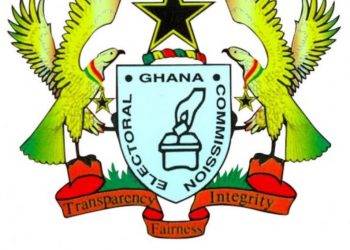The Electoral Commission (EC) of Ghana recently disclosed a significant change in the electoral procedure for the upcoming district-level election and subsequent polls. In a departure from tradition, the use of indelible ink, a semi-permanent dye applied to voters’ fingerprints to signify participation and prevent double voting, will no longer be a requisite.
EC Chairperson Jean Mensa shared this development during a press conference leading up to the district-level election scheduled for December 19. She highlighted that this decision is part of a broader strategy by the Commission to enhance the electoral process and establish a more robust identification system.
In the absence of indelible ink, Mensa explained that the adoption of biometric technology has rendered the traditional method unnecessary. Previously, facial recognition and card verification were relied upon for identity confirmation. However, with the implementation of biometric technology, individuals are uniquely identified through fingerprints and facial features during the verification process, making it exceedingly challenging for a verified voter to cast multiple ballots.
“The biometric technology makes it difficult for a person who has been verified and cast their vote to come a second time. So, there is no need for indelible ink. Once you have been verified, it goes into the system, and you cannot come back a second time,” Mensa affirmed.
She expressed confidence in the effectiveness of the new system, challenging anyone to attempt voting twice to test its integrity. Mensa emphasized that the biometric identification system is designed to flag and prevent multiple registrations, ensuring that once an individual has been verified and cast their ballot, they are unable to vote again.
Mensa concluded by reiterating the point that attempting to vote a second time, given the advanced biometric technology in place, would be considered an electoral offense. She underscored that the system’s recognition of facial features and fingerprints makes it virtually impossible for an individual to participate in the electoral process more than once.
-The Post Ghana



















































